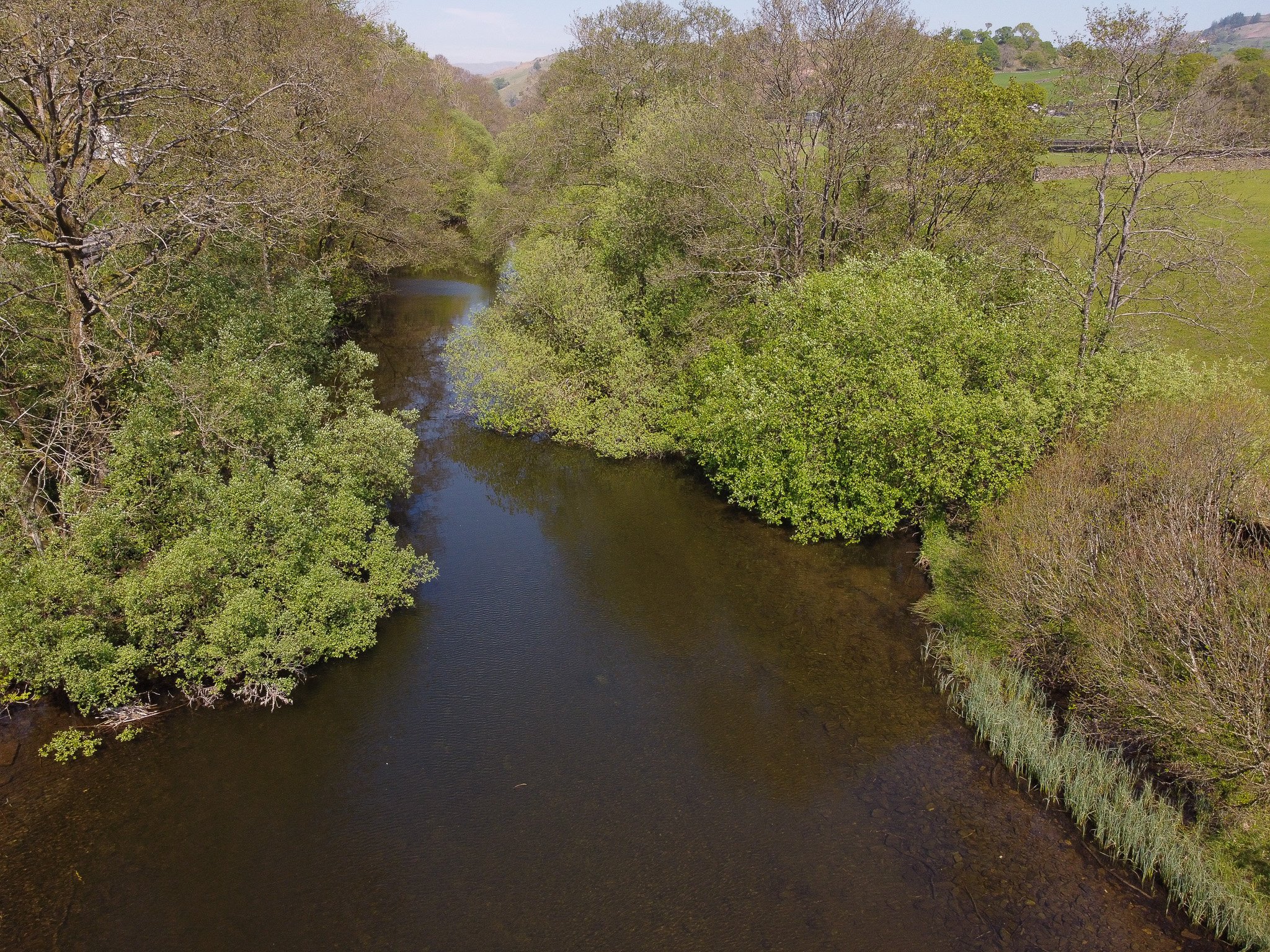
KEEP IT CLEAN!
The River Kent Needs You.
By making small changes to our everyday habits, we can significantly reduce the amount of chemicals reaching and harming the special river that we all love.
Find out how you can help protect the River Kent by downloading the information leaflets below & display, share our Keep It Clean Poster
Household:
Reducing Phosphate Pollution from Household and Garden Products
Many everyday products we use at home like detergents, surface cleaners, dishwasher tablets, and garden fertilizers contain phosphates or phosphonates, both of which contribute to phosphate pollution in our waterways.
Essentially, both phosphates and phosphonates contain the chemical element phosphorus (P). Phosphates are made up of phosphorus and oxygen, while phosphonates include phosphorus, oxygen, and a carbon atom. Although chemically different, both forms release phosphorus into the environment, which fuels nutrient build-up in rivers and lakes, a process known as eutrophication.
Phosphates are biologically more active, meaning they’re readily available for algae and aquatic plants to absorb. This can quickly lead to algal blooms, which reduce oxygen levels and threaten aquatic life.
Phosphonates break down more slowly, but still release phosphorus over time, adding to long-term nutrient pollution.
What can you do?
Choose eco-labelled, phosphate-free household products wherever possible. These alternatives are often marked as environmentally friendly and are formulated to clean effectively without contributing to nutrient pollution in our rivers.
Every small switch helps protect the health of our river Kent and waterways.
Take our Fun Household Quiz
Pet Care:
Reducing Chemical Pollution from Pet Flea and Tick Treatments
Many flea and tick products such as spot-on treatments, sprays, and collars contain fipronil and imidacloprid, chemicals that are highly toxic to aquatic invertebrates. These can enter rivers and streams through everyday activities like bathing pets, washing their bedding, or when pets swim in natural water.
A University of Sussex study found fipronil in 98% and imidacloprid in 66% of freshwater samples in England, highlighting just how widespread the issue is.
What can you do?
Washing pet bedding and brushes regularly at high temperatures and maintaining clean living areas. Vacuuming frequently helps minimise fleas in the home, reducing the need for chemical use. Try to limit your pet’s contact with areas where fleas may be present, such as dead wildlife. Consider using litter trays for cats so that waste can be properly bagged and disposed of in the bin instead of being left in the garden. After applying flea treatments, it’s important to keep dogs out of rivers and streams for a time, as wild water bodies are fragile ecosystems. Even avoiding these areas when possible, helps protect aquatic life. Finally, dispose of pet fur securely so that it isn’t picked up by nesting birds.
Small, mindful changes in how we care for our pets can make a real difference in protecting river life and water quality.
Some alternative products * (CRKC doesn’t endorse any particular product - if there are others on the market that we can add to this list please let us know:):
The Neam Team - range of natural products for people and pets
Healthful Pets - natural pet treatments
Take our Fun Pet Quiz
Septic Tanks and Off Main Sewage:
If you have an off-mains sewage system such as a septic tank or small/package treatment plant, it needs regular care to work properly. Ensure it’s not leaking and emptied annually to prevent sewage seepage.
What goes into your system can make a difference to how well it works. The systems rely on natural processes and beneficial bacteria to break down waste. Toxic or harsh chemicals can disrupt these delicate ecosystems leading to system failures, costly repairs and environmental harm.
Maintaining your off-mains drainage system properly will not only help prevent pollution, but also avoid bills and minimise your energy consumption.
How can I help?
Chemicals to Avoid in Septic and Off-Mains Systems
Avoid any chemical that kills bacteria, it may harm not just household germs, but also the essential bacteria in your septic tank. Some chemicals also don’t break down properly, meaning they can pass into the environment and pollute local water sources.
Detergents & Household Products
Use only products clearly labelled as septic-safe. Eco-friendly options are best, as they’re designed to minimise environmental harm and are less likely to disrupt the tank’s bacterial balance. Avoid products that require gloves they’re usually too harsh.
Phosphates
Choose phosphate-free laundry and dishwashing products that are kinder to the environment
Chlorine (Bleach)
Chlorine, commonly found in bleach, is a strong disinfectant but also highly toxic to ecosystems. Use sparingly or opt for safer, septic-friendly alternatives.
Take our Fun Septic Tank Quiz
For more useful information & published research on these topics



